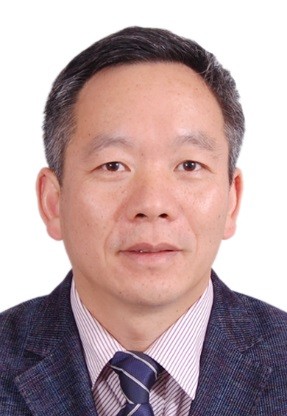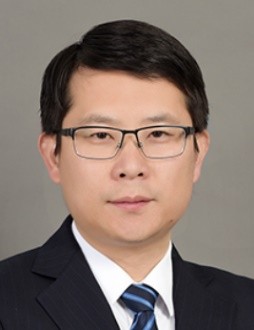
Keynote Speakers

His research interests include mechatronics for sustainability, cognitive process control and smart control engineering enabled by digital twins, small multi-UAV based cooperative multi-spectral “personal remote sensing”, applied fractional calculus in controls, modeling and complex signal processing, distributed measurement and control of distributed parameter systems with mobile actuator and sensor networks.
He is listed in Highly Cited Researchers by Clarivate Analytics from 2018 to 2021. He received Research of the Year awards from USU (2012) and UCM (2020). Most recently he started with Dr. Bruce J. West a new book series of CRC Press on AFC4STEM (Fractional Order Thinking in Exploring the Frontiers of STEM) and established a new section for Fractals and Fractional journal on “Optimization, big data and AI/ML”. His Google Scholar citations are over 55,100 with H-index 100 and H-10 index 643.

Title: Robotics and AI for Effective Stroke Rehabilitation Treatment: Challenges and Opportunities
Abstract: Stroke and neurological diseases have significant impact on our society. Robotic technologies have shown potential for delivering effective care and presented many opportunities for the healthcare industry. This talk will cover the recent development of robotic and mechatronic technologies for stroke rehabilitation, the research gaps and the need for new technologies in neuroscience, robotics and artificial intelligence.
The talk will introduce an EPSRC-funded project on intelligent reconfigurable exoskeletons tailored to meet patients’ needs, deliver effective diagnosis and personalised treatment, and monitored remotely by rehabilitation therapists. Examples of ongoing research work at the Leeds Centre for Assistive/Rehabilitation Robotics will be presented including pneumatic Peano muscle, DEA, soft exoskeleton, bilateral robot, neuromuscular and brain-computer interfaces.
Short Bio: Prof. Shane (Sheng Q) Xie, Ph.D., FRSNZ, FEngNZ, FIEEE, FASME, FIMechE and FAAIA, is the Chair of Robotics and Autonomous Systems and Director of the Rehabilitation Robotics Lab at the University of Leeds. He has over 30 years of research experience in healthcare robotics and exoskeletons. He has published over 500 papers and 8 books, supervised more than 15 postdocs, 100 PhDs and 80 MEs, with research funding exceeding £30M.

Topic: Machine Learning in Brain-Computer Interfaces
Abstract: A brain-computer interface (BCI) enables direct communication between the brain and external devices. Electroencephalograms (EEGs) used in BCIs are weak, easily contaminated by noise, non-stationary, and vary across subjects and sessions. Therefore, sophisticated machine learning approaches are required for accurate and reliable EEG decoding.
This talk introduces machine learning algorithms for accurate, secure and privacy-preserving BCIs, including robustness, adversarial security and privacy protection.
Dongrui Wu received his B.E. from USTC, M.Eng from NUS and Ph.D. from USC. He is Professor and Vice Dean of the School of Artificial Intelligence and Automation at HUST. He has over 200 publications (17,000+ citations, h-index 68) and is Editor-in-Chief of IEEE Transactions on Fuzzy Systems.

Title: Fractional Order Motion Systems and Controls
Abstract: Motion system control is developing toward more stable, precise and intelligent extreme performance, posing challenges to traditional control technologies. Fractional calculus enables fine representation with adjustable order and scale subdivision.
This talk summarizes new theories and methods for fractional-order modeling and control of motion systems, demonstrating breakthroughs in motion-following and disturbance-rejection performance beyond traditional limits.
Biography: Ying Luo received his Ph.D. degree through a joint program between South China University of Technology and Utah State University in 2009. He is currently a Professor at SCUT. He has published over 120 papers, authored two monographs on fractional-order control, and serves in multiple IEEE and SCI journal editorial roles.
